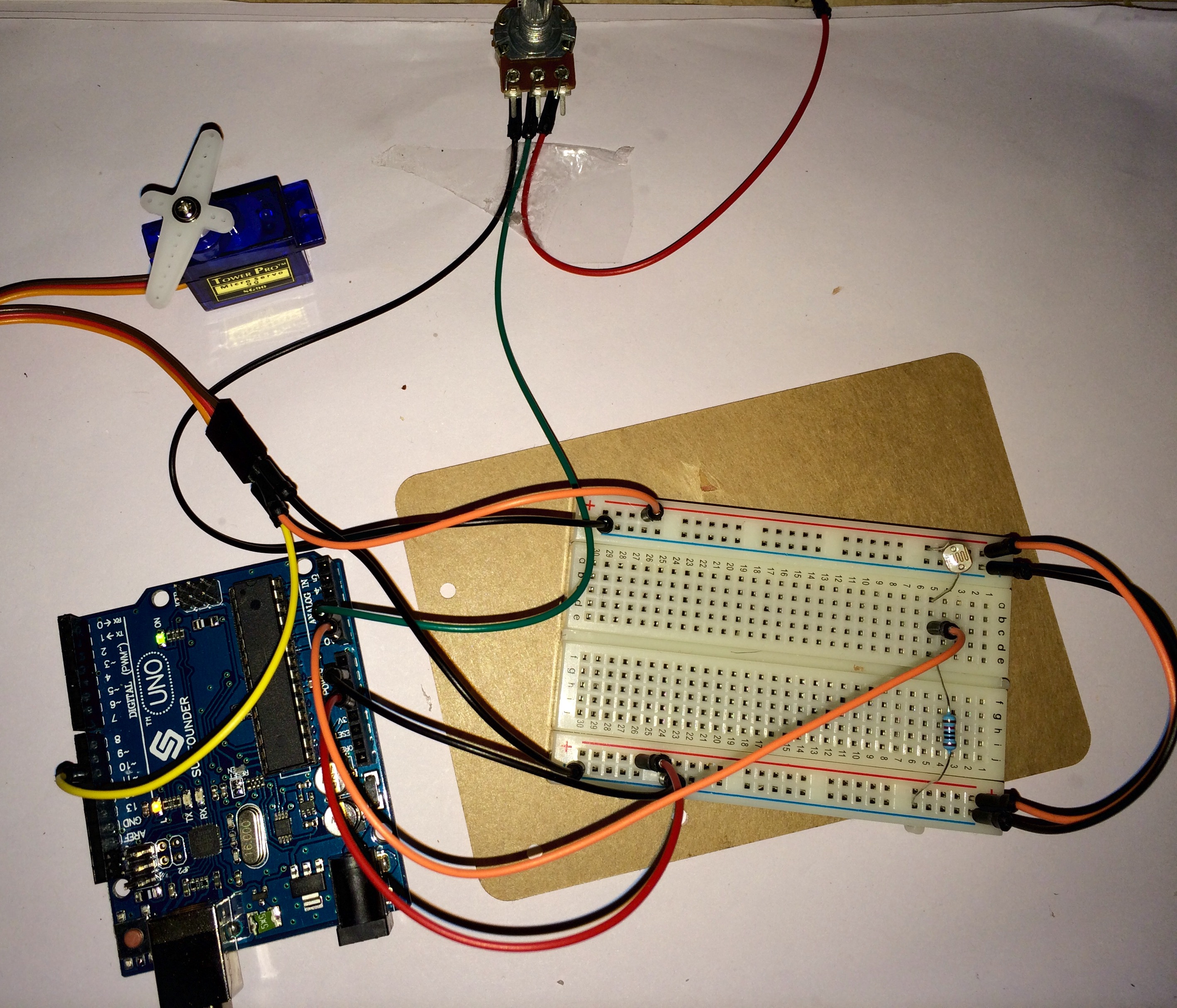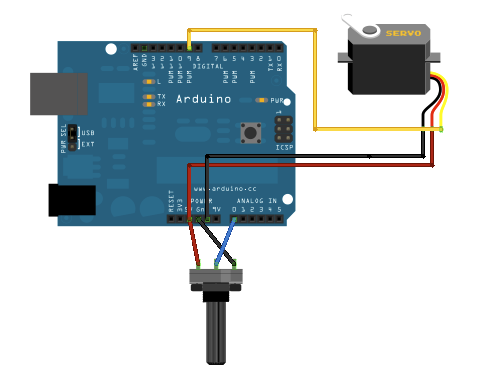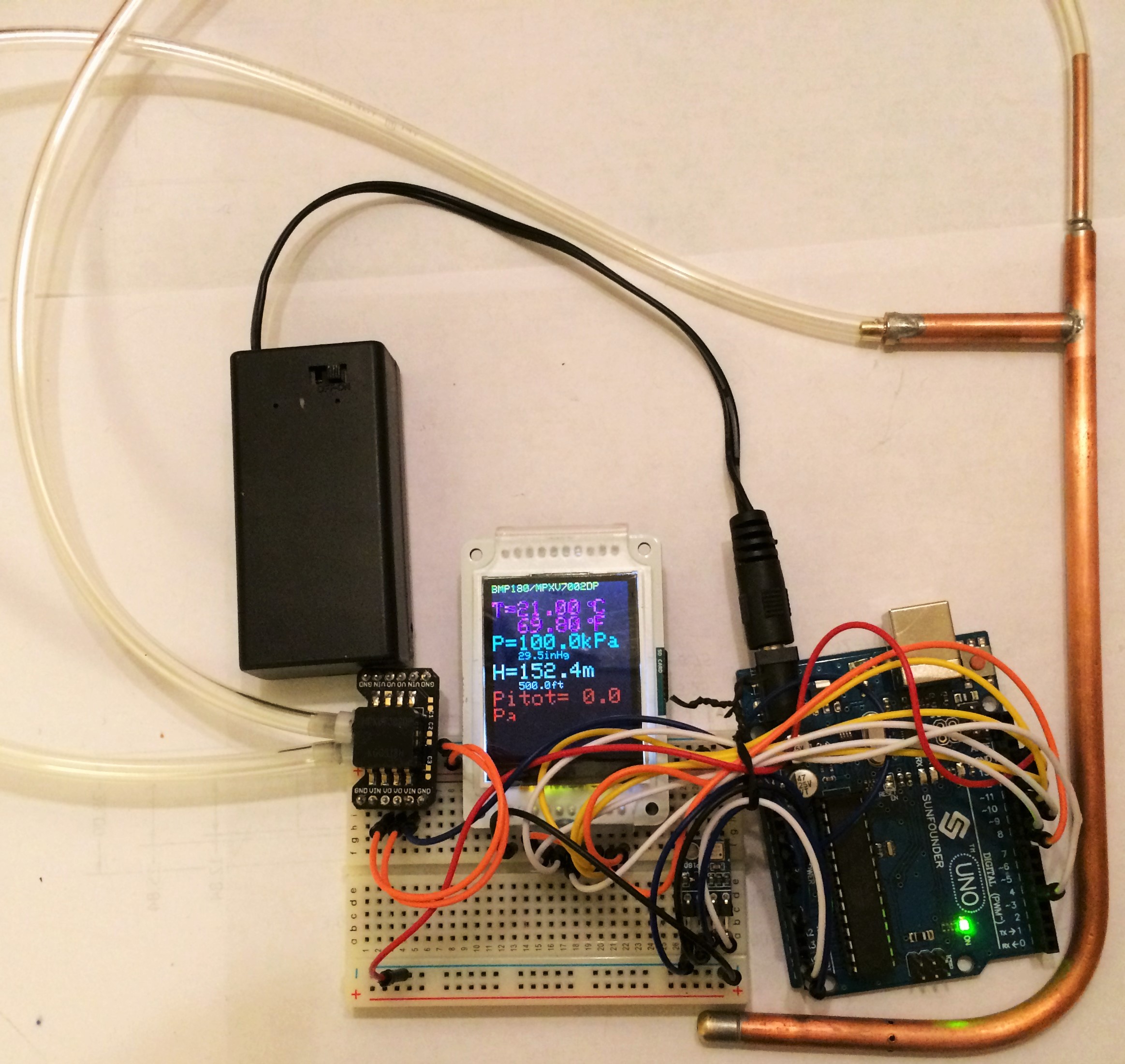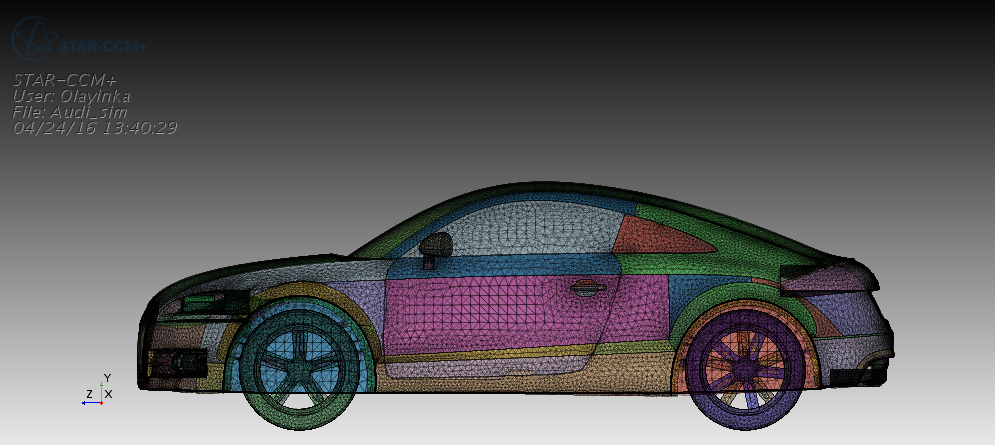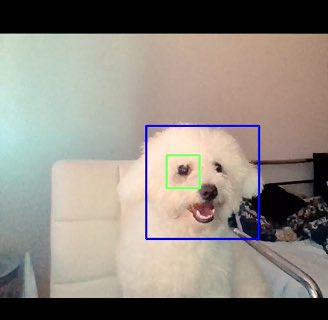Projects
Microcontroller Based Voice Controlled Home
This project uses an Arduino microcontroller and a V3 Voice Recognition module, trained to respond to user commands such as turning a light bulb on and off, low to high and responding to basic questions while outputting on a TFT display. A Bluetooth module was also implemented to control the bulb from a mobile phone here.
Microcontroller Based Control System
A program was written to drive a small servo motor which was triggered by a light sensor. The output component is a 9grams micro servo (SG90) which uses three connections cables brown (ground), red (input), and yellow (output). The brown cable was connected to ground on the breadboard, red to the positive input on the breadboard and the yellow to Pin 10 in the digital pulse-width modulation (PWM~) section on the Arduino R3 board. The PWM allows the servo to generate an analogue signal using a digital source, which allows the motor to rotate at a mapped degree when light is detected by allowing voltage at 9600 bits per second. This was also programmed to respond to a potentiometer. The aim of this project was to imitate usage of motors in industrial processes. Following the setup of the circuit and its components, a program was written to specify the intended output to be measured and how the demonstration process is to be carried out. Several measurements were then gathered using the serial monitor, recording at 9600 bits per second under certain conditions.
Data Acquisition System (Small Scale Wind Tunnel)
To gather quantitative data including velocity and pressure measurements from a pitotstatic tube, an environment monitoring DAQ was assembled using an Arduino microcontroller hardware and programmed in C++ in Uno. This assembly featured two key sensors; a Barometric sensor which provides room temperature,pressure, humidity and altitude measurements and a differential Pressure Sensor (DPS) which records pressure solely from the pitot static tube, all of which are displayed on a LCD screen. The program for this project can be found here, written in C++.
CFD windtunnel Simulations
This project involved simulating possible outcomes of a real life wind tunnel experiment using different objects of varying shapes including a sphere, cylinder and a 1:32 model Audi TT Quattro Coupe. These models were mounted stationary facing incoming flow in both simulation and actual experiment, using air as fluid. All simulations were carried out using Siemens Star CCM+. A detailed 50-page report on this project can be found here.
Tic-Tac-Toe Game
A single player Tic-Tac-Toe game written in mostly JQuery. Source code can be found here
Canvas Sprit Game
Whilst working at Select Gaming as a Junior Game Developer, I had the chance to be involved with some amazing game development from inception to deployment. In my free time I experimented with designing 1Dimensional sprite game with basic JavaScript Canvas, I got as far as designing an overall look for the game and implementing characters that responded to directional keys. Although it was nowhere near playable, I was quite proud of my "game" at the time.
Python Deep Learning Face Detection
Since developing a new-found interest in Neural Networks and algorithms, I have grown to really enjoy working with Convolutional Neural Networks due to their simplicity and accuracy. This project was then designed to track the human face and indicate when a face is recognised/detected. This program is written in Python using Numpy, Keras and tensorflow Backend.
Blog Posts from Medium
See All Projects

